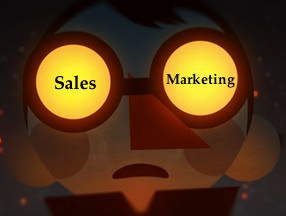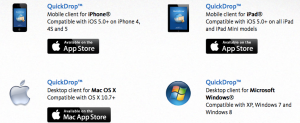The Digital Age Hacks Your Privacy
 The digital age has significantly changed how we share information. Social Media sites like Facebook, Instagram, Twitter, and LinkedIn provide a multi-media backdrop for our private data. Indeed the lines between privacy and disclosure are often blurry.
The digital age has significantly changed how we share information. Social Media sites like Facebook, Instagram, Twitter, and LinkedIn provide a multi-media backdrop for our private data. Indeed the lines between privacy and disclosure are often blurry.
Privacy is the key issue, coming at us from many directions. It’s not likely to be solved in the near future.
The polarizing debate between cyber safety and the right to information privacy has heated up on many fronts. Leading the charge is the Cyber Intelligence Sharing and Protection Act (CISPA) that passed the House in April 2012 but was abruptly tabled due to an outcry from Internet activists and a potential presidential veto threat.
Prompted by threats to national security and fueled by the growth in hacking and other cybercrimes, the bill essentially gives the Federal Government the right to private information for cybersecurity reasons. Opponents like the American Civil Liberties Union (ACLU) and the Electronic Freedom Foundation (EFF) say CISPA will allow companies and the Federal Government access to private data and pass it around without impunity.
Cool Tool Tip: Check out CloudPrime’s (since blog’s posting date, they have been acquired) encrypted secure file transfer tool… think Fort Knox for sending those huge files.. or files you want to keep safe from peeping eyes!
Thin Lines
The lines are precariously thin between sharing personal data and the right to privacy. As you post personal information on your social networks, you invite the capricious hacker intent on disrupting your security and right to privacy.
Even though there are privacy-rumblings from the Federal Government and the potential CISPA bill could emerge, for the most part, the Federal Government has taken a hands-off approach to regulate online privacy, favoring freedom of speech.
Before bills get passed and the Federal Government gets enmeshed in the debate, companies must take cybersecurity seriously.
Kaiser Permanente Rules
Healthcare is under the HIPAA Privacy Rules. It protects the privacy of healthcare information and sets national standards for the security of electronic health information. Following HIPAA tracks, Kaiser Permanente is getting out in front of legislation by providing a comprehensive privacy policy. When perusing websites, look for these initiatives to measure the degree a company will take to ensure your data security.
Keeping It Private
Before cybercriminal was even a word, non-computerized personal and private data was also at risk. Thieves on foot, commonly known as burglars, can easily break into offices and take files laden with private data. Even your garbage can has tons of data. Any thief can go through and piece together vital information from credit card receipts, discarded pay stubs, and the like. Perhaps it’s easier for a cybercriminal to sit at home and hack away free from prying eyes and garbage smells!
If you’re posting personal information on social networks, know this: No information is private. Really. If it’s in a digital format that lacks encryption, the chances are very good a cybercriminal will figure out how to hack it. To safeguard your information, look for service providers using “military-grade encryption” and are compliant with existing rigorous standards like HIPAA, FIPS, and PCI-DSS.
Certainly, Facebook is convenient for sharing content with family, friends, and perhaps even the occasional work colleague or high school pal from your past. But if you have ever been the victim of a cybercrime, identity theft, or hacking, you’ll be much savvier when posting personal data. As a good rule, keep Facebook for pictures of your kids, dogs, and cats. It’s probably a good idea to keep pictures of those rare moments of indiscretion off the Internet entirely. You want a job, don’t you?









